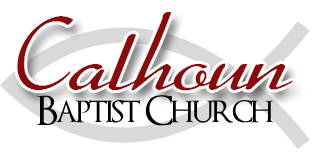
RAYTOWN – The Missouri Pastors’ Conference tied future generations with past influence, emphasizing the importance of spiritual heritage.
Matt Kearns, MBC Making Disciples Catalyst Leader, spoke poignantly about the influence of his late mother.
He recalled often seeing his mother with her open Bible on her lap. Kearns said in her last weeks, a nurse checked on her about 2:30 a.m. at a care facility, to find her on her knees, praying.
Greg Stier, a youth ministry leader and author from Colorado, told how his largely heathen family, including uncles who terrified the Denver mafia, gradually came to know Christ. In the afternoon he detailed his uncle Jack’s conversion, after a Southerner named “Yankee” shared Christ with Jack on a dare. Jack accepted and immediately became an evangelist, albeit uncultured.
In the first month of Jack’s salvation, he brought the salvation message to 250 people. He also brought 18 of 25 people to saving knowledge of Jesus, who gathered in a Mormon church for what they thought was Mormon indoctrination. The latter happened when Jack, on a whim stopped at a “church” to share his testimony.
“It’s good for us to remember the spiritual heritage,” Stier said, in sharing 2 Timothy 1:3-8. “All of us have a powerful transformation story. Timothy’s story may seem more typical (than my uncle Jack), but it was transformational.
“Pastors, teachers. Let’s keep Christ crystal clear and use simple words. All of us were criminal in the eyes of Christ before we came to what turned into the adoption proceeding. Learn how to lovingly engage the gospel presentation in conversation and fan the flames.“
Alvin Reid, a Southeastern Baptist Theological Seminary professor in Wakefield, NC, told pastors “God created you for his glory to advance his gospel with the gifts, talents, and opportunities he gave you. I’ve been clinically diagnosed as ADHD and God uses me.”
“We can all have gospel conversations. Paul always had the conversation ‘Jesus is the resurrection.” Reid said. “Talk about Jesus in a way that connects the gospel to people today.”
“The people of the church need to be who God made them to be, not what the church makes them to be,” Reid said
Kearns shared statistics about reaching the technical millennial generation group, (born 1980-2000) which outnumber baby boomers (born 1946-64).
“Millennials are more family focused, are looking for guidance, know few boundaries in technology, live in a new kind of diversity, and are a complex religious breed.”
Kearns said only six percent of millennials affirm evangelical truth statements, like the Bible being the accurate word of God, having a personal responsibility to witness, knowing religious faith is important, and God is all knowing and all powerful. Kearns said these factor in strategies to reach millennials.
Reid also talked about reaching and keeping the next generation. He said over half the world’s population is less than age 30 and live mainly in cities.
“We have to share the unchanging truth, but in different ways. The only time we can be sure that God is speaking is to read His word,” Reid said.
Reid encouraged Christians not to be the ones discouraging the movement of God.
Stier said prayer is key in energizing the churches to do the work.
“Prayer is the most underutilized tool in our arsenal. Every service ought to have a gospel presentation,” Stier said.
After one of Stier’s sessions he walked among the pastors to look them in the eyes to pray for them.
